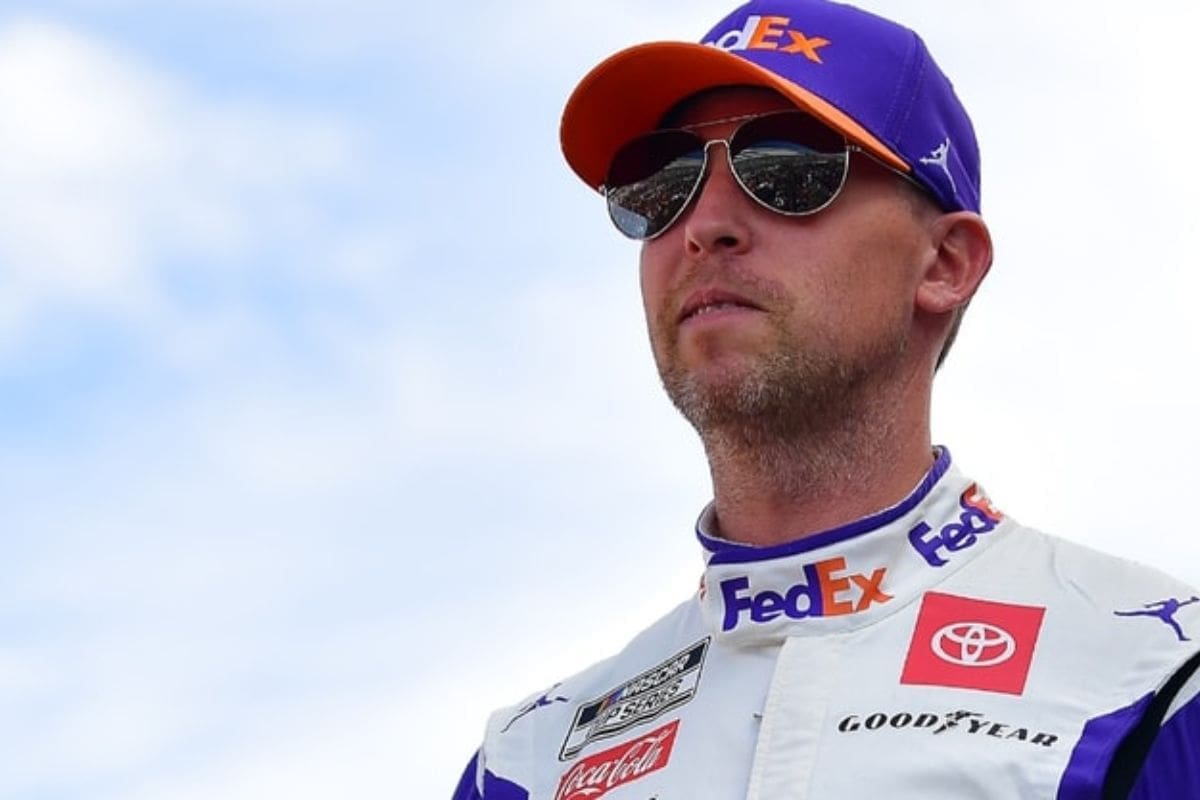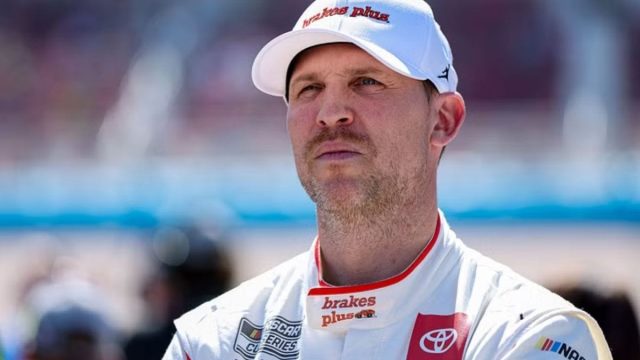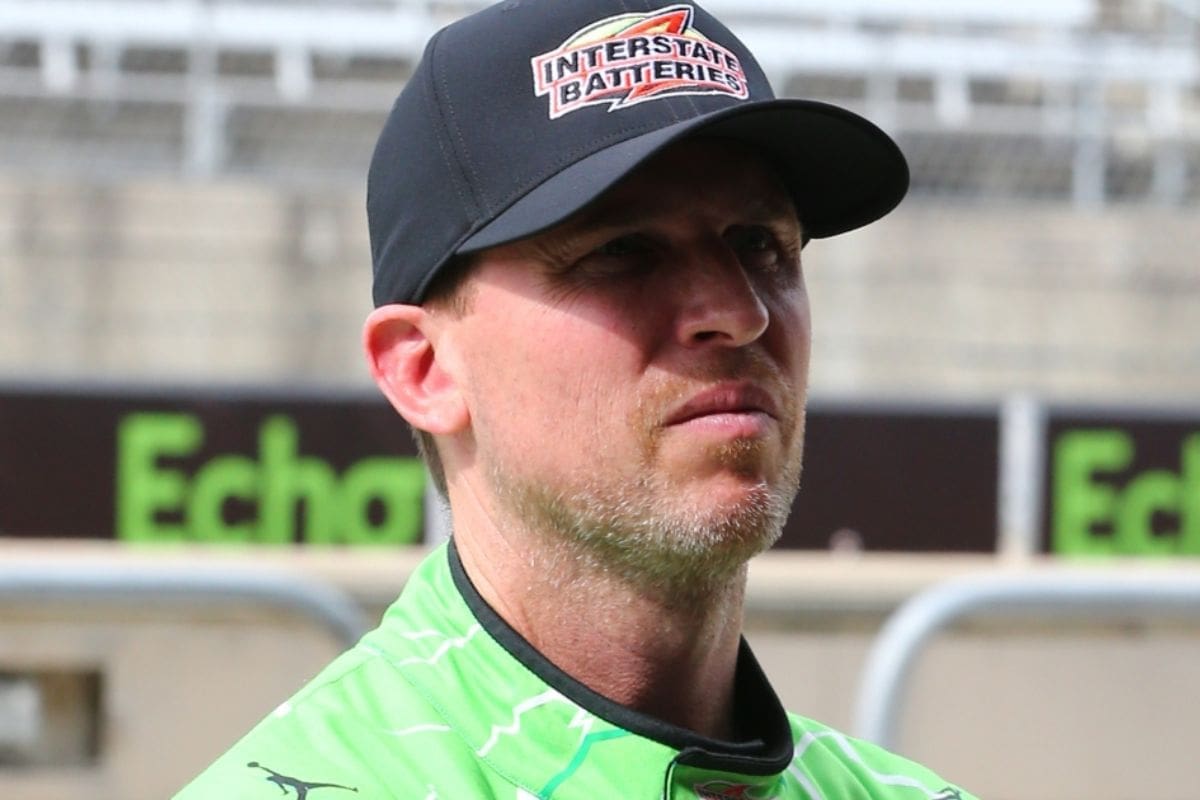Hamlin Reacts to Smaller Teams Breaking Agreement: Denny Hamlin‘s reaction to smaller teams breaking ranks in charter talks highlights the intricate challenges inherent in aligning the varied interests within NASCAR. Hamlin’s call for unity and a collective bargaining stance sheds light on the strategic importance of presenting a consolidated front to negotiate effectively. The divergence of smaller teams pursuing separate deals not only complicates negotiations but also threatens the structural integrity of the sport. This situation raises fundamental questions about the long-term viability and systemic cohesion of NASCAR, prompting a deeper examination of the strategies required to foster sustainable collaboration among its stakeholders.
Key Highlights
- Hamlin emphasizes the complexity of aligning interests among diverse NASCAR teams during charter negotiations.
- He notes the readiness of smaller teams to accept the current offer for financial stability.
- Hamlin highlights the potential for individual teams to negotiate separate deals, complicating the collective bargaining process.
- He shows the importance of a unified front to enhance bargaining power and ensure equitable terms.
- The fluidity and complexity of the negotiations are significant, reflecting the varying strategic approaches of different teams.
Overview of The Charter Negotiations
The charter negotiations in NASCAR, a critical process that dictates the operational framework and financial distribution among teams, have recently come under scrutiny as smaller teams express discontent with the latest offer from the sanctioning body. This negotiation process is central to balancing the economic and competitive aspects of NASCAR, ensuring that teams, regardless of their size, have a fair opportunity to thrive within the sport.
Historically, the charter system was introduced in 2016 to provide team owners with more financial stability and a guaranteed spot in races, thereby elevating the general value of their teams. The ongoing negotiations, however, have revealed fractures within the alliance of the 15 chartered teams. Reports indicate that smaller teams are particularly dissatisfied, describing NASCAR’s latest offer as one of the worst yet, according to Jenna Fryer of the Associated Press.
The dissatisfaction stems from a perception that the financial terms proposed disproportionately favor larger teams, thereby widening the resource and performance gap. Smaller teams, which operate with tighter budgets and fewer resources, are concerned that the proposed changes could further marginalize their competitiveness. This friction has led to speculations that some smaller teams might break from the collective front and accept NASCAR’s terms, potentially undermining their bargaining power.
These negotiations are more than just financial discussions; they represent the broader struggle for equity and sustainability within NASCAR. The outcome of these talks will likely shape the future landscape of the sport, influencing how teams strategize and operate.

Denny Hamlin’s Perspective on Team Dynamics
During the ongoing charter negotiations, Denny Hamlin has offered a detailed perspective on team dynamics, highlighting the complexity of aligning the diverse interests of NASCAR teams. In a frank discussion on the Actions Detrimental podcast, Hamlin elaborated on the inherent challenges faced by teams as they navigate these intricate negotiations.
“I think it’s understandable if some teams were done fighting and we need to just get done.” – (Hamlin)
Hamlin’s analysis emphasizes the divergent agendas within the NASCAR ecosystem. Some smaller teams appear poised to accept NASCAR’s offer, seeking to expedite the resolution of negotiations. This readiness reflects a practical approach, likely driven by immediate financial considerations and the desire for operational stability.
Conversely, other teams remain firm in their commitment to the broader alliance’s stance, aiming for a more unified front to potentially secure better terms. This difference in strategy shows the complex landscape of team dynamics within NASCAR.
“Because NASCAR can cut a different deal with all different teams, that’s what the provisions they’ve got. They can just cut a separate deal with a separate team. Again, that can make your head scratch at times but it could happen for sure.” – (Hamlin)
Hamlin’s insights show the potential for individual teams to deviate from collective bargaining efforts, opting instead to negotiate separate deals with NASCAR. This flexibility shows the organization’s ability to cater to the unique needs and priorities of different teams, further complicating the pursuit of a unanimous agreement.
Hamlin’s perspective significantly highlights the fluidity and complexity inherent in these negotiations. The interplay of varying team sizes, financial health, and strategic priorities creates a challenging environment for consensus-building.
Importance of Unity and Alignment
Recognizing the critical point in NASCAR’s history, Hamlin demands for a unified front among teams to effectively navigate the complexities of the charter negotiations. He articulates the necessity for cohesion, emphasizing that a fragmented approach could threaten the potential for meaningful improvements. Hamlin’s call for unity is not merely a plea for harmony but a strategic imperative to make sure that the sport evolves in a manner that benefits all stakeholders.
“I think it’s okay if teams want to do their own thing and say, ‘This is good enough for them. I think everyone has those rights to do that and we’ve seen that happen for many many decades but I think the teams are more aligned than the fact that these are the key issues that need to be addressed and we haven’t had gone through this last 10 year agreement and we have seen where we need to improve and we have seen movement on those things we haven’t got any movement, we know we have to live by this next charter agreement for the next 7 years.” – (Hamlin)
Hamlin acknowledges the diversity of perspectives among teams, each driven by unique agendas and operational realities. However, he emphasizes that there is overarching alignment on several key issues that need to be addressed. These include the distribution of revenue, competitive balance, and the long-term sustainability of teams.
He points out that the collective experiences from the previous 10-year charter agreement have highlighted the areas requiring enhancement, and the forthcoming 7-year agreement presents a crucial opportunity to implement necessary changes.
Future Outlook
Looking ahead, the future outlook for NASCAR depends on the teams’ ability to forge a unified front, thereby guaranteeing that the upcoming charter agreement addresses the critical issues of revenue distribution, competitive balance, and sustainability. Denny Hamlin’s commentary highlights the gravity of these negotiations, indicating that the sport’s trajectory will be greatly influenced by the collective actions of the teams involved.
The reduction in the number of chartered teams, as noted by Hamlin, poses a substantial challenge. This decline could worsen competitive imbalances and strain financial resources, making it essential for teams to collaborate on a framework that promotes long-term stability.
| Focus Area | Potential Impact |
|---|---|
| Revenue Distribution | Ensures equitable financial support for teams |
| Competitive Balance | Levels the playing field for all teams |
| Sustainability | Promotes long-term viability |
| Team Unity | Strengthens collective bargaining power |
| Innovation | Stimulates technological and strategic growth |
Such a multifaceted approach will likely involve detailed financial modeling and strategic planning, aiming to fairly distribute revenue while fostering an environment where smaller teams can thrive.
Furthermore, the emphasis on sustainability must address not only financial health but also environmental considerations, aligning with broader trends in sports and entertainment industries. Team unity, as Hamlin suggests, will be vital in these endeavors, providing a stronger collective voice in negotiations with stakeholders.
News in Brief: Hamlin Reacts to Smaller Teams Breaking Agreement
The complexities inherent in NASCAR charter negotiations highlight the critical need for unity among teams to address systemic issues effectively. Hamlin’s reaction to smaller teams’ deviations emphasizes the potential risks of fragmentation within the sport.
Achieving a cohesive strategy is vital for the long-term viability of NASCAR, as collective bargaining can better navigate the challenges and interests of diverse stakeholders. Future negotiations must prioritize strategic alignment to secure sustainable outcomes for all involved parties.
ALSO READ: Denny Hamlin Denies Team Conflict, Critiques Charter Approach



